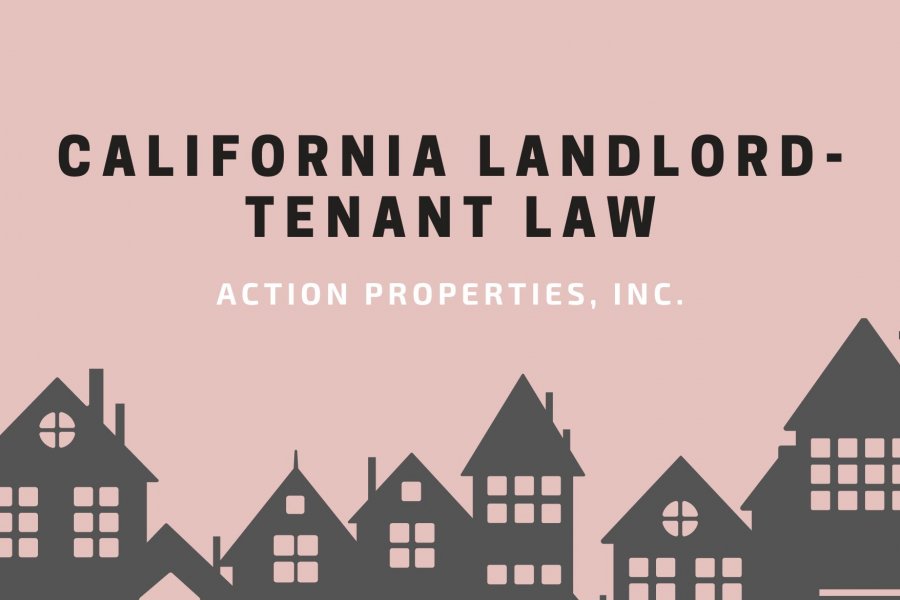
To be a successful landlord, you need to familiarize yourself with California landlord-tenant law law (CA Civil Code 1940-1954.05). The code specifies what rights and obligations each landlord and tenant has, as well as important rules California landlords must abide by.
The code becomes effective once a lease has been established. In the state of California, a lease exists when there is either an oral agreement or a written document. The following is everything landlords should know about California landlord-tenant laws.
Required Landlord Disclosures
Landlords have an obligation under both federal and state laws to disclose certain information to their tenants. The following are some of the disclosures:
- Disclosure on lead-based paint. This applies to rental properties that were built before 1978. California landlords renting out such homes must let tenants know about lead-based paint concentration.
- Disclosure on bed bugs. Landlords must provide your tenant with info regarding how they can report bed bug infestation. Please check Civ. Code §§ 1954.603 on the specific language you must use.
- Disclosure on mold. As the property owner, you must provide your tenant with documentation regarding any known mold.
- Disclosure on whether the rental unit is located in a known flood zone.
- Disclosure on whether the landlord has any knowledge of known drug contamination AND remediation is yet to be completed.

California Tenant Rights & Responsibilities
The following are some rights that apply to California tenants. The right to:
- Live in a habitable dwelling.
- Withhold rent or using the “Repair and Deduct Remedy” if repairs aren’t done within a reasonable time.
- A fair eviction from the landlord through a judicious court eviction process.
- Have their security deposit, less allowable deductions, returned on time.
- Be served proper notice prior to the termination of their periodic lease.
- Be treated without discrimination by the landlord based on certain protected classes.
- Be served with proper notice prior to landlord entry.
As for the responsibilities of a tenant, they are as follows:
- Maintain the rental unit in a clean and habitable condition.
- Keep the fixtures clean and sanitary.
- Respect the peace and quiet of other tenants.
- Repair damages they cause through their use, misuse, or carelessness.
- Use the rental property for its intended purposes.
- Pay rent on time.
- Abide by all terms of the lease agreement.
California Landlord Rights & Responsibilities
The following are the basic landlord rights in the state of California. The right to:
- Enter the rental unit to carry out important responsibilities.
- Carry out an eviction against a tenant for gross violation of the lease, including unpaid rent.
- Charge the tenant a security deposit and withhold part or all of it for certain reasons.
- Terminate a periodic lease agreement after serving proper notice.
- Charge “reasonable” late fees as per the dictates of the lease agreement.
- Screen prospective tenants based on certain criteria as long as the process is free from discrimination.

The list of California landlord responsibilities is as follows:
- Provide the tenant with a property to rent that abides by the minimum state’s safety and health codes.
- Provide tenants with all amenities promised in the rental or lease agreement.
- Follow the proper judicial eviction process when an eviction is necessary for lease-breaking tenants.
- Abide by California security deposit laws when requiring tenants to pay security deposits.
- Comply with the state’s rent control provision, and provide tenants with proper notice when looking to raise rent.
- Comply with the Fair Housing Act.
- Provide the tenant with a 24 hours’ advance notice prior to entering their rented property.
- Provide the tenant with all mandatory disclosures prior to the tenant moving in.
An Overview of the Landlord-Tenant Laws in California
The following is an overview the local laws that every landlord must follow to rent out their property:
1. Tenant Privacy & California Landlord Right to Enter the Dwelling
Your California tenant has a right to privacy. What this means is that landlords must provide their tenant with written notice prior to entering their rented premises. Specifically, the landlord must provide them with advance notice of at least 24 hours.
The only exception to providing the written notice is in case of an emergency.
2. California’s Housing Discrimination Laws
Under the Federal Fair Housing Act, it’s illegal for landlords to discriminate against their tenants based on their race, color, nationality, religion, disability, sex, or familial status.

California laws also extend extra protection based on marital status, immigration status, source of income, and sexual orientation. Other protections include primary language, military and veteran status, gender identity/expression, citizenship status, ancestry, and mental disability.
3. Rent Control Regulations
Mountain View has rent stabilization laws that are different from statewide rent control laws. The Community Stabilization and Fair Rent Act is an amendment that passed in 2016 and aims to protect renters from excessive rent increases while still allowing landlords and rental property owners to get a healthy ROI on their rentals.
In Mountain View, landlords can only increase rent on their property once per year. Landlords must also give their tenants at least 30 days' notice before requiring them to pay rent equal to the increased amount. The amount that rent can be increased is determined by the annual general adjustment rate decided on by the Mountain View Rental Housing Committee.
There have also been more recent rules implemented to keep apartments with below-market prices available to lower income renters. Action Properties is extremely knowledgable on local rent control laws and our team is here to help if you have any qiestions.
4. Condition, Maintenance, and Repairs
As already mentioned, landlords have a duty to provide their tenants with a habitable dwelling space. This also means responding to repair requests within a reasonable time, which should be 30 days (or sooner for emergencies), or allowing tenants to use the repair and deduct remedy to fix it themselves.
The state’s warranty of habitability requires landlords to provide the following amenities to tenants:
- A working heating, ventilating, and air conditioning system.
- Safe stairs and railings.
- Working smoke detectors.
- A home free of mold and bed bugs.
- Properly functioning gas lines and fixtures.
5. Security Deposits
Landlords in California have a duty to abide by the state’s security deposit rules. The following are some of the rules under California law:
- Not charge a security deposit exceeding the rent of 2 months.
- Return the security deposit within 21 calendar days after the tenant moves out of the property.
- Only make allowable deductions on the deposit, such as when the tenant causes negligent damage and moves out without fixing it.
- Store the deposit properly. Generally speaking, landlords are not required to store their tenant’s deposit in an interest-bearing account. However, some cities, such as Los Angeles and Berkeley do require it.

6. Required Disclosures
As a landlord in California, you must make disclosures on:
- Bed bugs
- Lead-based paint
- Mold
- Military ordinances
- Demolition permit
- Asbestos
- Common utility use and payment
- Pest control
- Smoking policy
Bottom Line
For more questions regarding the California landlord-tenant laws or professional rental management services, get in touch with Action Properties, Inc. We’re the top property management company in Mountain View and Silicon Valley. Get in touch to learn more!
Disclaimer: This blog should not be used as a substitute for legal advice from a licensed attorney in your state. Laws change, and this post might not be updated at the time of your reading. Please contact us for any questions you have in regards to this content or any other aspect of your property management needs.